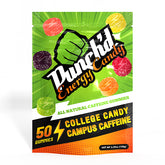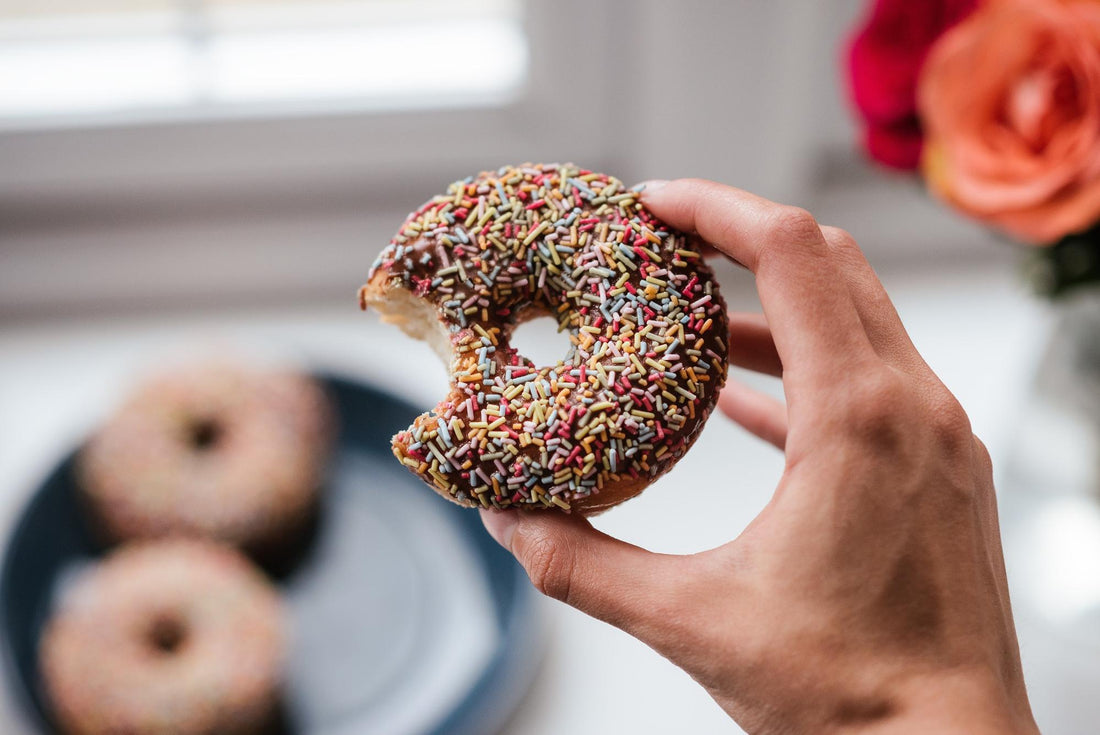Artificial Energy: Reasons to Kick Refined Sugar
The negative impacts of sugar can sometimes be hard to understand. Why? Because consuming sugar makes us feel great.
And sugar is everywhere: in processed food, in alcohol, in soft drinks and in sweets. We reach for these foods, often unconsciously, when we’re feeling tired and craving a boost.
However, the quick, energetic satisfaction provided by sugar isn’t nearly worth its long-term detrimental impact on our health. Here’s why.
Sugar Consumption Habits
When people talk about sugar in regards to nutrition, they’re often referring to the white, refined and processed type. This sugar is extracted from processed sugar cane or sugar beets. It’s then added to practically everything we can buy in a grocery store, explains the Cancer Treatment Centers of America.
“Food manufacturers add chemically produced sugar, typically high-fructose corn syrup, to foods and beverages, including crackers, flavored yogurt, tomato sauce and salad dressing.”
If you’ve ever reached for a cracker, a soda or a candy bar when you felt tired, there’s a scientific reason why. Didn’t it make you feel great? That’s because sugar is often linked to a high, or energy spike.
Sugar causes feelings of elation because it satisfies the brain’s craving centers. It also increases your blood pressure and boosts your heart rate. But these feelings of energy and excitement are short-lived, explains Dr. Vincent Pedre, author of “Happy Gut.”
“The problem is that the ‘sugar-coaster’ keeps going up and then crashing down. The more you do, the harder you fall.”
Loading up on sugar feels great at first, but it can leave you lagging soon after the crash fades. These crashes can affect how we think and feel.

Sugar and Depression
The link between diet, sugar intake and overall mood is reinforced by a growing body of research and discussion.
Today, more than 300 million people around the globe people experience depression. In the United States alone, 16.2 million adults (6.7 percent) have had a major depressive episode in the past year, says psychotherapist Amy Morin.
One study, co-authored by Anika Knüppel and colleagues at the University College London, showed that sugar intake increases the instances of mood disorders in men. “With a high prevalence of mood disorders, and sugar intake commonly two to three times the level recommended, our findings indicate that policies promoting the reduction of sugar intake could additionally support primary and secondary prevention of depression.”
Another study, sponsored by the Women’s Health Initiative (WHI), focused specifically on the impact of dietary sugars on women. It followed the dietary habits of 49,000 women over the span of eight years to see how food affected their overall health and wellbeing.
Deane and Patrick Alban, founders of the blog Be Brain Fit, summarize the results of this study concisely: “Sugar and processed grains increase the risk of depression, while fruits and vegetables decrease the risk.”
In an article for The Conversation, Knüppel also points out how sugar and sweet foods affect an important protein called BDNF, thought to influence the development of nerve cells in the brain. Some researchers believe that sugar can reduce BDNF functions, thereby contributing to increased depression and anxiety.
Anxiety is another side effect of sugar, especially in people who are addicted to the substance or who’ve made it a habitual part of their daily life. Dr. Jennifer Bahr at The International Bipolar Association says that consuming high-sugar foods causes reactive hypoglycemia (a sugar crash) because the body releases an excessive amount of insulin to process the sugar.
“This leads to a too rapid reduction of blood glucose, or blood sugar levels, causing your body to release adrenaline to compensate. This is the ‘fight or flight’ chemical that causes the anxiety and irritability.”
Loading up on sugar can make a person feel both irritable and anxious, especially if they’re already prone to mood disorders.
Sugar, Acidity and Inflammation
Sugar is also an acidic substance that can cause pH imbalances in a number of ways, says Dr. B.J. Hardick. He adds that a diet in excess sugar lowers the pH between cells. It also creates sodium and potassium imbalances, all of which contribute to metabolic acidosis, which stresses the vital organs and causes cortisol to spike.
“Studies show overall people who eat more refined sugar consume fewer fruits and vegetables, creating sodium to potassium imbalances that mess with your body’s buffering system, creating – you guessed it – an even more acidic environment between your cells.”
Acidosis causes stress on the entire body, accelerates aging, increases fat storage and ramps up inflammatory pathways that can damage cells and lead to disease.
Interestingly, coffee appears to contribute to acidosis and chronic inflammation, as well, says physician and author Dr. Mark Hyman. “The acidity of coffee is associated with digestive discomfort, indigestion, heartburn, GERD and dysbiosis (imbalances in your gut flora).”
Increasing the body’s pH levels by consuming sugar causes inflammation throughout the body. Inflammation is linked to many negative symptoms, according to Healthline’s Kimberly Holland. Sleeping pattern changes, loss of appetite and heightened pain perceptions are all associated with inflammation.
This is why signs of depression might actually be signs of chronic inflammation, which is something many people suffer from because refined sugar is a ubiquitous ingredient in our diets. In contrast, a diet high in fruits and vegetables may have the ability to reduce inflammation and associated symptoms.

Energy From Natural Caffeine
If excess sugar is taking a toll on your health, natural caffeine provides an alternative way to boost your mood and your energy levels. Natural caffeine is derived from a variety of plants, including coffee beans, cacao beans and Kola nuts, explains David Hu, a dietician with the International Food Information Council Foundation. Natural caffeine is also found in the leaves and buds of tea, especially in the leaves of Yerba mate and in the bark of Yoco. Guarana berries, guayusa and holly from the yaupon plant also provide a natural source of energy.
These alternatives are much healthier than sugar because they don’t involve the glucose spikes and crashes associated with refined sweets.
Natural caffeine is also known to contain a variety of health-boosting ingredients. Many caffeine-containing plants and leaves are rich in antioxidants, says Michael Kravit at Eco18. These compounds actively work to combat illnesses in the body, and they have been proven to reduce instances of Alzheimer’s and cancer.
In fact, cancer, heart disease, diabetes, premature aging and general cognitive decline have all been associated with insufficient antioxidant levels in the body, explains CoffeeScience. Antioxidants cleanse the body and oxidize free radicals in the body. This process forms “harmless substances that can then be flushed out of the bloodstream and body, naturally.”
When the benefits of natural caffeine are compared to the detriment of sugar consumption, there’s clearly a winner. Sugar should be only consumed in moderation and shouldn’t be relied on as a source of energy or happiness.
Images by: Nathan Cowley, Moli Maeder, Anete Lusina








